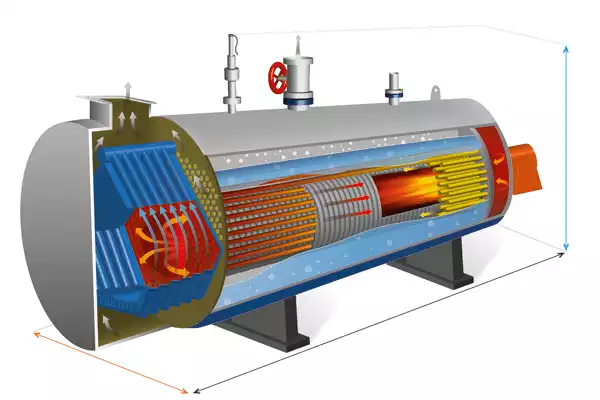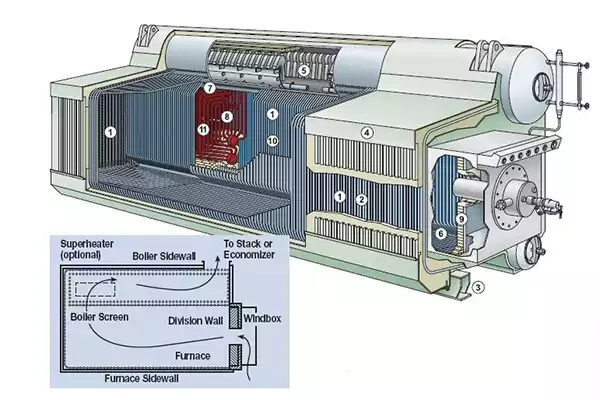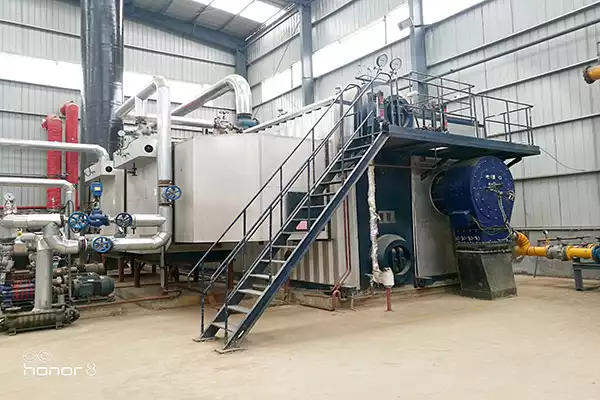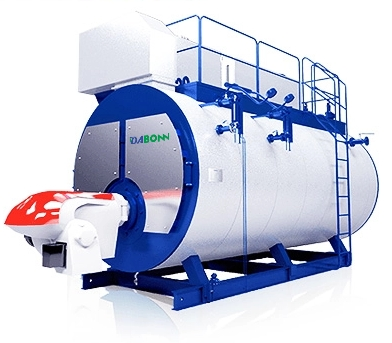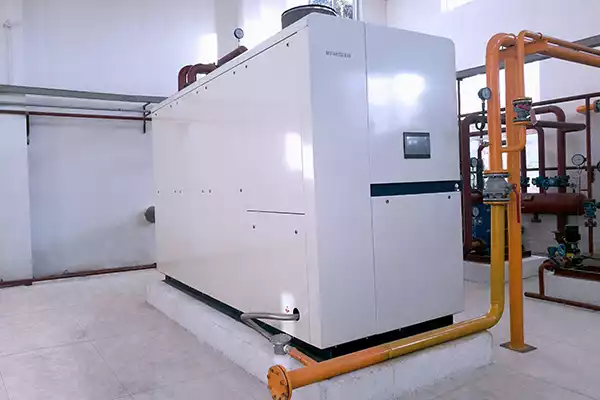
What causes boiler noise
Boiler noise can manifest in various forms, including banging, clanking, hissing, or gurgling sounds. These noises can originate from different parts of the boiler system, such as the pipes, radiators, or the boiler unit itself. Understanding the source of these sounds is crucial for efficient boiler maintenance.
1. Water Hammer Effect
One of the primary culprits behind boiler noise is the water hammer effect. This occurs when fast-moving water inside the boiler system suddenly stops or changes direction, creating a shockwave that reverberates through the pipes. The result? Those annoying banging sounds. Water hammer can be caused by a variety of factors, including improperly sized pipes or a malfunctioning valve.
2. Sediment Buildup
Over time, sediment, minerals, and debris can accumulate in the bottom of the boiler tank. When the boiler heats the water, these sediments can create popping or crackling sounds as they’re heated and disturbed. Regular boiler maintenance, including flushing the system, can help prevent this issue.
3. Air in the System
Air bubbles trapped in the water can also lead to boiler noise. As the water circulates through the system, these bubbles can create a gurgling or hissing sound. Bleeding the radiators and ensuring proper system ventilation can help alleviate this problem.
4. Expansion and Contraction
Boilers operate by heating water, causing it to expand. When the heated water circulates through the system and cools down, it contracts. This continuous expansion and contraction can result in creaking or groaning noises, especially in older boilers. Ensuring the proper maintenance and insulation of your boiler can mitigate this issue.
5. Pump Issues
A malfunctioning circulator pump can also be a source of boiler noise. If the pump is failing or clogged, it may produce unusual sounds. Regularly inspecting and maintaining the circulator pump can prevent this from becoming a problem.
Boilers play a crucial role in various industries, including manufacturing and power generation. However, the noise generated by boilers can be a significant concern, affecting both workplace comfort and productivity. In this comprehensive guide, we will explore effective strategies for reducing boiler noise and ensuring quieter operations.
Understanding the Source of Boiler Noise
Boilers can generate different types of noises, each with its own cause. It’s crucial to identify the specific noise your boiler is making to effectively address the problem. Here are some common boiler noises and their potential causes:
1. Banging or Clanging Noises
– Cause: This noise often occurs due to water hammer, where water hits closed valves or fittings, creating a loud banging sound. It can also result from metal parts expanding and contracting as the boiler heats up and cools down.
– Solution: To reduce these noises, consider installing water hammer arrestors or adjusting the water pressure. Regular maintenance to ensure proper fittings and clearances can also help.
2. Whistling or Screeching Noises
– Cause: Whistling or screeching sounds are usually caused by scale or mineral deposits building up on the heat exchanger or inside the pipes. These deposits can disrupt water and steam flow, resulting in high-pitched noises.
– Solution: Regularly descale your boiler to remove mineral deposits. Refer to your boiler manufacturer’s instructions for the recommended descaling process. This maintenance task is crucial for efficient boiler operation.
3. Gurgling or Bubbling Sounds
– Cause: Gurgling or bubbling noises often indicate trapped air within the system. When air pockets move around the boiler and pipes, they can create these distinct sounds.
– Solution: Bleeding the air from the system is key to resolving gurgling or bubbling sounds. Check your boiler’s user manual for instructions on how to bleed the system properly. This should be part of your regular maintenance routine.
Preventing Boiler Noise:
In addition to addressing specific noises as they occur, there are preventive measures to reduce boiler noise over time:
1. Regular Maintenance:
– Boilers, like any machinery, require regular maintenance to operate quietly and efficiently. Schedule yearly inspections and servicing to identify and fix potential issues before they become noisy problems.
2. Water Treatment:
– Invest in water treatment systems to prevent scale buildup. Water softeners and chemical treatments can help reduce the chances of scale formation, which can lead to noisy boilers.
3. Proper Sizing:
– Ensure your boiler is the right size for your facility’s needs. An oversized boiler can lead to excess cycling, causing noise. Consult a professional to determine the correct boiler size for your application.
4. Insulation:
– Consider adding insulation around pipes and components to dampen noise. Insulating materials can absorb and reduce sound vibrations.
5. Regular Radiator Bleeding:
– If you have a hydronic heating system, bleed the radiators periodically to release trapped air and prevent gurgling sounds.
Conclusion
The above are the reasons why boilers generate noise and how to eliminate it. If you still have other questions, you can contact us. We are a professional boiler manufacturer and can help you solve various boiler problems. WhatsApp: +86 15690850708 or send email to [email protected].
Get your best price
Quickly compare 3 FREE quotes
- Engineer quick quote
- The overall delivery speed is fast
- Financial choice
- Low installation costs and cost savings
25 years+ of boiler R&D
More than 20 innovative technologies

